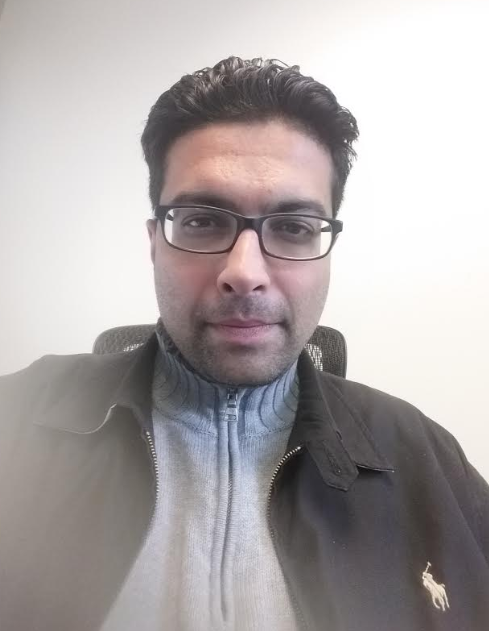Making a Difference in the Midst of Disaster
The Power of Interfaith Relationships
by Syed, M. Hassan
Since its founding more than 25 years ago, Islamic Relief USA (IRUSA) has made a concerted effort to develop productive relationships with other faith-based groups and non-governmental organizations.
The key issues which IRUSA works on – poverty, hunger, women’s empowerment, clean water, increasing access to health care – know no boundaries when it comes to those who are helped. Large segments of the worldwide population are impacted, which also means people of many faiths.
IRUSA has found working with other organizations to be the ultimate elixir in helping make meaningful and substantial differences. Over the past quarter-century, Islamic Relief USA has developed a number of partnerships across faith lines. Here are some:
For much of 2017, Islamic Relief USA worked with the United Methodist Conference - North Carolina. Volunteers with the IRUSA Disaster Response Team, headed by Hani Hamwi and Maryam Ahmed, joined church volunteers to repair and rebuild homes in Tarboro and Princeville that were decimated by Hurricane Matthew.
Catholic Relief Services funded a project to prevent and fight cholera in Yemen, a country where Islamic Relief works in 19 of the 22 governorates. IRUSA helped administer the project on the ground. Teamwork is essential in a country like Yemen, that is presently immersed in several crises on many fronts, both manmade and natural, and virtually all political.
In the summer of 2018, IRUSA joined forces with HIAS, an international Jewish refugee organization, to expand its legal services operations on the Greek Island of Lesvos. The islands had been serving as a temporary home for many refugees from Muslim-majority countries – particularly Syria, Afghanistan, and Turkey – seeking a better life after escaping widespread persecution and brutality. The office will help advance refugee rights and provide them with protection, particularly to minors, survivors of gender-based violence, and people with disabilities who make up much of the influx.
IRUSA’s relationship with the Church of Latter-day Saints stretches back several decades. During this partnership, the church has provided essential support for various projects that IRUSA executed in Yemen and Somalia. The church has also provided support for flood relief and drought relief projects in Pakistan and Somalia, respectively.
While Muslims have become more common in mainstream society, gaining influential roles in politics, medicine, information technology, among other disciplines, they are still a relatively small segment of the American population. The Pew Research Center estimates there some 3.45 million Muslims, accounting for just above one percent of the U.S.’s overall population.
Despite the relatively small numbers, their influence is showing, and this sphere was expanded by embracing others. IRUSA’s mission is to provide relief and development in a dignified manner without regard to one’s race, gender, creed, or religion. The organization believes communities – and society at large – are better off when we look past our differences and focus on working together toward the common goal of helping humanity.
As Jason Duval, disaster response manager of the United Methodist Conference, said to a local news reporter covering the rebuilding effort, “We just want to make a difference in the world.” He described the partnership with IRUSA this way. “We worship the same God; we just have differences in how we worship,” he said. “We’re just trying to let the world know that we can get along in peace.”
IRUSA’s partnership with the United Methodist Church in responding to a disaster in North Carolina underscored the power of deep, meaningful and productive interfaith relationships The local folks took note. One Princeville resident, Delores J. Porter, expressed her gratitude when she noticed several IRUSA volunteers, dressed in blue organization T-shirts, installing support beams in the sweltering North Carolina heat. She told the volunteers, “I just don’t know how to thank you enough. If I start tearing, just forgive me. It has been a long journey.” Her small one-story house was submerged in close to 10 feet of flood water. Fortunately, she and her husband were doing OK. Upon seeing the IRUSA volunteers, Ms. Porter joked, “I will take a hug from everybody. I am a hugging person. And if you don’t mind my perspiration, I definitely don’t mind yours.”
Another Princeville resident, Selesta Whitehead, who is widowed, promised his wife he would always care for her mother. That promise was tested when his mother in-law’s bungalow was engulfed with 4 feet of water. While he cared for her during this devastating period, IRUSA and United Methodist helped rehabilitate the home. He was grateful for the help. “Thank God we have some wonderful people who come and help out, doing things they don’t have to do,” he said. “Out of the goodness of their heart, they come and help out.”
Stories like these don’t only help the people who suffer physical property damage. During these increasingly cynical times, when division, nativism, and insensitivity seem too in vogue and generate eye-popping headlines, these vignettes serve as reminders that people still want to help one another. They want to help those who don’t necessarily speak, act, or believe in the same doctrines as they do.
True, these interactions at first can come across as forced and contrived. However, get past the initial awkwardness and bonds quickly form organically. It just takes a little faith. And when it happens, we can truly make a difference in the world.
Header Photo: IRUSA FB



